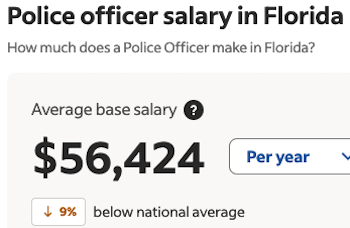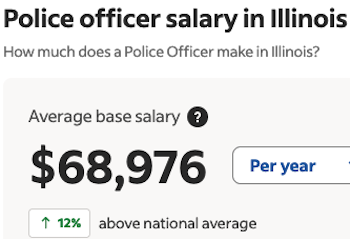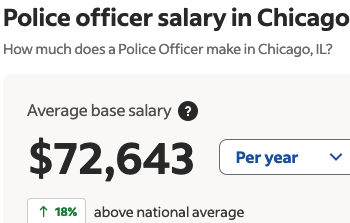* Capitol News Illinois…
“It’s in the Constitution. We have a right to organize,” [Brady Burden, a staffer in the speaker’s office who is part of the organizing committee of the Illinois Legislative Staff Association] said. “The only issue that we need, is that the speaker recognize the union.”
[Michael LeRoy, a professor at the University of Illinois College of Law and the School of Labor and Employment Relations], however, said the Worker’s Rights Amendment is actually vague on that issue because it’s written in prospective terms, referring to future enactments by the state or local governments.
He said that although the first sentence of the amendment says employees have a fundamental right to organize, the next sentence says, “No law shall be passed that interferes with, negates, or diminishes” collective bargaining rights.
“They use the term ‘shall be.’ That’s future tense,” he said. “It doesn’t reach back. It doesn’t say any law that has been enacted that interferes with collective bargaining is hereby nullified. It doesn’t say that.”
LeRoy said the purpose of the amendment was to prevent the enactment of so-called “right-to-work” laws at either the state or local level. Those are laws that say employers cannot require someone to be a member of a union as a condition of employment.
* Professor LeRoy’s analysis, however, skims over the very first sentence of the constitutional amendment…
Employees shall have the fundamental right to organize and to bargain collectively through representatives of their own choosing for the purpose of negotiating wages, hours, and working conditions, and to protect their economic welfare and safety at work.
You can’t just disregard that text.
*** UPDATE *** Illinois Legislative Staff Association…
Following their Labor Day weekend statement urging Speaker Emanuel “Chris” Welch to acknowledge and engage with them, the Illinois Legislative Staff Association (ILSA) issued the following statement:
“We are the Organizing Committee of the Illinois Legislative Staff Association. Two weeks ago, as workers across Illinois began their Labor Day weekend, we issued a statement calling on House Speaker Welch to ‘practice what he preaches’ by coming to the table. We want him to meet with us about our concerns, a timeline for recognition of our union, and the negotiation of a contract. We waited a full calendar week following the Speaker’s return from his trip overseas to ensure that he and his aides had sufficient time to review our concerns and issue a full response. Despite this, we are still waiting for any communication or even an indication that they are willing to come out of hiding and confront reality.
Today is the 290th day since we first collected signed cards from more than 50% of our bargaining unit and asked the Speaker to voluntarily recognize our union. It is also the 136th day since we announced ourselves in the press. That announcement came after five months of attempting to handle this issue internally. Despite that, Speaker Welch continues to pretend we do not exist.
Gov. Pritzker has gone on the record to say that he supports our right to organize. And yet, Speaker Welch has refused to make any public remarks regarding our union.
Not only that, the Speaker and his senior aides have insisted that we ‘follow the established process’ when they know full well that there is no established process for legislative employees. This is not just our opinion; this is the opinion of the Illinois Labor Relations Board (ILRB). In the ILRB ruling from over five and a half months ago, they stated their Board has no jurisdiction over legislative employees barring a ruling over the application of the Workers Rights Amendment from the Courts or through legislative action, powers which the ILRB does not possess.
Following this, we asked the Speaker and his aides repeatedly to lay out a path to recognition. In response, we received disingenuous evasions or were ignored outright. This is despite the Speaker having the right to voluntarily recognize our union at any time without needing a framework.
The Speaker and his aides have erroneously implied that we are demanding voluntary recognition because we are unwilling to hold an election. In reality, we have said repeatedly that we would welcome one, including explicitly in our Labor Day weekend statement. Over the last nine and a half months, we have suggested to the Speaker’s aides that an election be arranged, only to be brushed off. They have yet to explain this behavior on the record.
Once again, whenever the Speaker is prepared to come to the table, we are ready to meet with him. If he wants an election, let’s arrange it. If he wants to use another process, let’s sit down and establish that process. ILSA is ready and has been ready since we first brought our organizing efforts to his attention on November 29th. Our goal has been and will continue to be to collaborate in good faith in
order to move forward.
It is Speaker Welch and his aides who are refusing to allow that to happen.
It appears fruitless to continue waiting for the Speaker and his aides to do the right thing on their own. That’s why ILSA now intends to adopt a more proactive posture. From now, until we hear from the Speaker, we will seek to make our case more clearly and emphatically. Speaker Welch can continue to delay and hope that attrition will solve his problems before he is forced to address them. However, as we have said before, we are not going away.
We demand that the Speaker and his aides meet with us and meaningfully address our many concerns. They must cooperate with us to establish a process and timeline for the recognition of our union and the negotiation of a contract. Until this happens, we will continue to promote transparency regarding our working conditions. We will highlight the insulting manner in which Speaker Welch and his aides continue to treat his staff, as well as our constitutional right to organize.
The people of Illinois deserve a Speaker of the House who lives up to his principles every bit as much as his staff deserves pay and working conditions that are sustainable, fair, and non-exploitative.
ILSA will not stop until the Speaker’s office chooses to meet these standards.”





















